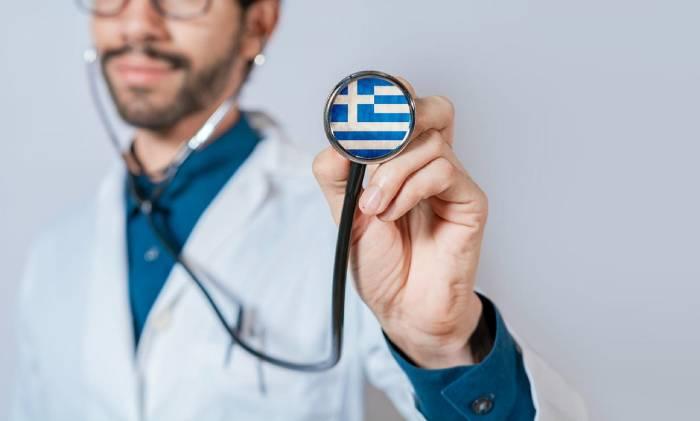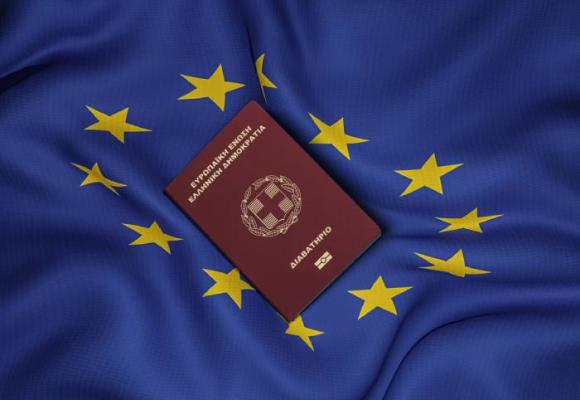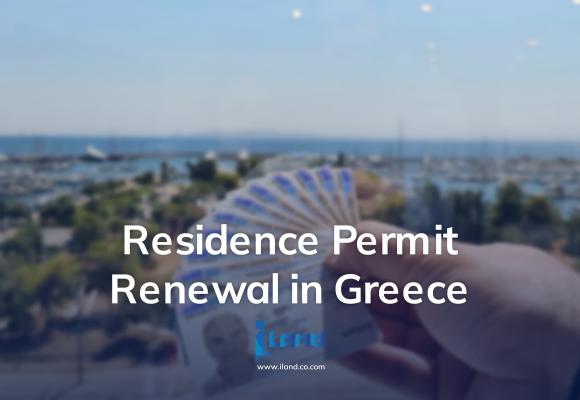Healthcare in Greece for Expats | Costs, Insurance, and Tips

In recent years, Greece has created a system of health care comprising private and public services to ensure access to assured quality medical services for the locals and foreign residents. For individuals looking to relocate to Greece, one of the biggest concerns for many is healthcare, and most expats would like to ask or tend to ask, "Is free healthcare in Greece available?" or "Is healthcare in Greece free?"
Happily, there are many services made available by the public health system for little to no cost for residents who hold social insurance, while private medicine (either with an individual's own health insurance policy or the private component of a public healthcare treatment) provides residents simpler, quicker access to services, and in most situations, wider coverage.
If you are thinking of life abroad, it's wise to know about the healthcare in Greece for expats. Access to treatment, insurance requirements, and impressions of the possible health insurance in Greece for foreigners' expenses when planning a long-term stay or investment certainly are going to be significant. Feeling secure about medical treatment is just as high a priority as securing a property or residency in this Mediterranean nation.
Overview of healthcare in Greece
The Greek healthcare system is composed of a public and a private system. The ESY is the public system, which is funded by taxes paid by the citizens as well as social security contributions. In this way, the citizens can get hospitals, clinics, and emergency care at no cost or low cost.
So many wonder then, "is Greece's health service good?" In general, it is extremely good, especially in Athens and Thessaloniki with modern facilities and highly trained doctors to hand, but in the smaller towns or outlying islands there may be less to hand and private health care is movement tempting.
For expats, Greece's medical system seems complicated initially, but after registering in the system, the care is relatively very inexpensive. Foreigners mostly purchase supplemental private insurance for obtaining shorter waiting times, English-speaking doctors, and generous coverage. The cost of health insurance in Greece for foreigners may vary, but overall, it is considered to be fairly cheap compared to other European countries, making Greece an attractive nation to those who wish to have quality healthcare and a lifestyle at the Mediterranean Sea.
Pros and Cons of healthcare service in Greece
Legal residents can receive public health services with little or no cost.
There are hospitals, clinics and emergency services available across the country.
You will get good doctors and facilities in larger cities (some public hospitals, clinics and services are more modern than their private competitors).
You may receive a better speed of service with private care, have access to doctors that speak English and have more options.
There are flexible private insurance plans aimed at foreigners to help meet your needs and eliminate the budget balance.
Cons of Health Care in Greece
Less access to care, and long wait times in smaller towns and remote islands.
Bureaucratic processes can be tedious and time consuming. This may end up being bewildering to expats and newcomers.
Private care can be expensive, especially in comparison to public care.
Some procedures, pharmaceuticals or specific specialist treatments may not be covered fully by public insurance.
Urban public hospitals may be extremely busy with patients insisting they get treated with little choice of independent doctors

Does Greece Have Free Healthcare?
Greece utilizes a public healthcare system which is often spelled as "free" to residents, but is a little more complicated than that. Legal residents who are registered in the social security system (visa with an AMKA number) can use public hospitals/clinics/emergency services at either little or no cost. This means that at little or no cost to the patient, most basic medical services, well child physicals, and emergency services are covered, and thus using public healthcare provides little or no costs to residents.
That said, not everything is free. When it comes to some medication, specialty care, or advanced diagnostic tests, a patient will usually have some out-of-pocket costs. Plus, the average waiting time in public hospitals, especially in the cities tends to be long, which is why most residents and expats will often obtain private insurance to supplement. In summary, Greece provides nearly free or low cost healthcare to residents through its public healthcare system. But, some of these expenses are expected out-of-pocket to residents.
It is usually recommended to limit your out-of-pocket patient expenses by using private health insurance to ensure timely access to healthcare services and improved services that are occasionally provided in healthcare clinics.
Discover the best digital nomad visa in Europe and let our experts guide you toward a seamless application process today.
How is the Healthcare in Greece for Expats?
Navigating the Greek healthcare system can seem challenging to expats at first, but the system is relatively simple once you become familiar with the changes to access care. As a legally foreign resident with an AMKA number registered on the social security system, you have access to public health services.
Public health services are offered in public hospitals, first aid centres, local health centres, emergency care, and selected specialists with minimal or no direct costs to you, because you'd be covered under the AMKA system. In practice, this means expats can access services for a low or almost zero-cost like Greek citizens, while registered on the social security system.
However, many expats decide to use private health care or get private or international health insurance to complement public health services. Private health care in Greece is quicker (for appointments), you can see English-speaking doctors, use modern facilities, and have more options for specialists, elective procedures or medications. Private health insurance premiums can vary based on coverage levels and age, but rates for foreigners are relatively cheap considering what would be paid for the same coverage in some other European countries.
Expats should also be mindful that services can differ considerably by location. Significant cities (e.g. Athens, Thessaloniki, and Patras) will provide good public and private hospitals and even a wide range of specialists. Conversely, if you are located in a rural area or an island, facilities will be underdeveloped, waiting times will be long, and there are few English-speaking doctors. Given this, private care or travelling to a big city is typically more convenient.
Emergency care is also a consideration, as even in a public hospital, they are mandated to treat emergencies. In a public hospital setting, they are required to treat emergencies regardless of residency and/or insurance status. For anything non-urgent, they will require registration in the system. Expats should also be advised to carry their European Health Insurance Card (EHIC) if they have one as it provides some coverage if they travel while in EU countries.
Overall, healthcare in Greece for expats is fairly accessible and reliable. However, you will need to do some planning. You should register for public healthcare (where you can), check insurance cover people offer as well as what is the best combination of public and private care to access medical services smoothly. Regardless of whether you are moving to Greece for work, retirement, or property investment in Greece, you will have a clear healthcare plan that will give you peace of mind for a good life abroad.
How much does the health insurance in Greece cost for foreigners?
Type of Health Insurance | Coverage Level | Monthly Cost (EUR) |
Private (Single Person) | Basic coverage | 80 – 150 |
Private (Single Person) | Comprehensive coverage (specialist care, hospital stays, medications) | 200 – 350 |
Private (Single Person) | International / Premium plan | 250 – 450 |
Private (Family: 2 adults + children) | Basic coverage | 200 – 400 |
Private (Family: 2 adults + children) | Comprehensive coverage | 500 – 900 |
Private (Family: 2 adults + children) | International / Premium plan | 800 – 1,200 |
Public System Contribution (expats with AMKA/EFKA) | Basic public coverage | Included in social security contributions; minor co-pays 10–25% |
If you want to learn more about Residence Permit in Greece, visit our other page or contact our experts.
Conclusion
Healthcare in Greece offers a combination of public and private services, making it accessible for both locals and expats. Legal residents can benefit from affordable or nearly free public healthcare, covering hospitals, clinics, and emergency services, while private healthcare provides faster access, English-speaking doctors, and broader coverage.
For expats, understanding the system is key. Registering with the social security system (AMKA) ensures access to public services, while private or international insurance can supplement coverage for faster treatment and specialized care. Costs for private insurance vary depending on age, family size, and coverage level, but are generally reasonable compared to other European countries.
Overall, Greece provides a reliable healthcare environment for foreigners, with high-quality medical professionals in major cities and flexible insurance options. Proper planning choosing the right combination of public and private care ensures peace of mind, safety, and a comfortable life while living or investing in Greece.
Healthcare in Greece is a mixture of public hospitals and private hospitals. For both locals and expats together, healthcare is very accessible. There are legal residents in Greece (such as EU and USD citizens) that enjoy public healthcare for much less if not free!
Public healthcare in Greece covers the whole range of hospitals, clinics and all emergency services. Private healthcare in Greece offers faster access and service from English-speaking doctors and much broader options for low-cost insurance on many plans.
For expats and any foreigners, the most important aspect of how to navigate the healthcare system. The social security system (AMKA) is critical for access to public services. It’s not required that you sign up for public insurance, but you can also purchase private or international insurance policies as a supplement - for faster treatment or specialty services.
Most private insurance will be affordable, compared to many other European and developed countries, but the cost of private insurance will likely depend upon your age, size of family membership, and service level of coverage.
In summary, Greece is a viable healthcare setting for foreigners. There are very competent healthcare professionals and institutions in the larger major cities. The system has flexible insurance, especially for expats, and with the right planning in selecting the right combination of public and private care, good planning will ensure peace of mind, safety, and easy living whether you live or invest in Greece.
News
Keep up with the latest updates on the industry of real estate investments.

























Add new comment